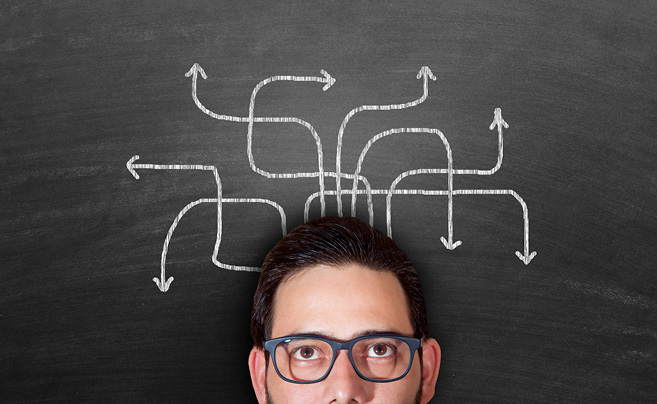As a leader, the requirement to make decisions quickly and easily is a given. But is it ever justified to simply trust your gut?
When we say we ‘trust our gut’, we are putting our trust in our vagus nerve, one of the cranial nerves that connects the gut and brain. Conscious decision-making involving the prefrontal cortex is a slower more ponderous thinking route, while the ‘gut’ response is transmitted very fast at a subconscious level that we ‘feel’ as physiological response.
Intuition is that sense of knowing something, it’s an unconscious reasoning based on our values, memories and experience. Intuition alone however is no guarantee that the right decision will be made.
One way of looking at it is that your gut response is a provisional hypothesis that needs checking and evaluating using logic, analysis and reasoning to fill in the details.
Your decisions are based on how you feel.
Whether you travel fast or slow, all decisions involve emotion. What counts is having the awareness of how emotion and mood influence decision-making. Being busy and caught up in the daily challenges of our work diminishes our capacity to notice what our intuition is telling us.Holding strong beliefs or being highly committed to a cause can lead to more impulsive decisions being made, especially if accompanied by strong emotions. The caution here is to wait because most emotion is short lived. What seemed the best choice in the heat of the moment may not look so great in the cold light of day.
An overactive amygdala enhances negativity bias, making what might be normally seen as a minor inconvenience to take on epic significance.
That’s why sleeping on a problem before making your choice is sound advice. It gives your brain the space required to distance yourself from any strong emotion. Plus serotonin levels (our good mood hormone) are highest in the morning keeping the brain in a calm, more relaxed state.
Take time out to tune in.
Step away from conscious focused thought to engage in quiet reflective thinking. Whether in a quiet place to be alone with your thoughts, undertaking a mindfulness practice or taking time out, allowing your mind to wander a little helps promote greater insight, creativity and imagination — all useful to building greater intuitive reserve.
Practice makes perfect.
Your brain is constantly looking for recurring patterns that occur over time. Accumulating wisdom and experience helps to generate intuitive solutions more quickly when required.
Check your thinking group. B Positive.
Staying in a positive state of mind boosts your ability to make intuitive judgements. Managing negative emotions through choosing to ‘let go’ or accepting circumstances more mindfully keeps emotion on a leash.
Eat lunch.
It might seem crazy but we make better decisions when not hungry. One study examining how extraneous factors determined judicial decision-making revealed the likelihood of being granted parole was connected to a judge’s meal breaks.
When tired, the cognitive demands of making a complex decision leads to the brain choosing the mental shortcut that maintains the status quo and defers the decision to another time.
Sleep on it.
During REM sleep the brain is busy making new associations and creating insight.
Sleep helps problems to gently percolate overnight to help us wake up with the answer in the morning.
Whereas sleep deprivation makes decision making a risky business by changing the way the brain assesses economic value, increasing sensitivity to positive rewards while diminishing sensitivity to negative consequences.
Trusting your gut is a useful secondary voice to all good decision making.





